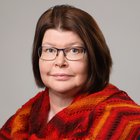
Inclusive democracy as part of decision-making – Turku UAS’ project influences at the EU level
The CoSIE project, coordinated by Turku UAS, aimed to involve users of various services in the development work of the public sector. Now the European Economic and Social Committee recommends the EU Commission to take up the subject.
The European Economic and Social Committee (EESC) has made its own initiative statement on the joint development of services of general interest to promote a more inclusive democracy.
The statement was significantly influenced by Turku University of Applied Sciences' international CoSIE project ( Co-creation of Service Innovation in Europe ), which ended a year ago. It was a project funded by the EU's Horizon2020, which aimed to involve experts with experience, i.e., ordinary people, in the development of public services.
– It is a great thing that the EESC has taken a stand from CoSIE and started to take it forward, so that the impact of the project would actually be further exploited to cover the whole of Europe, says Dr Heli Aramo-Immonen, project director of the CoSIE project and Principal Lecturer at Turku University of Applied Sciences.
– In practice, CoSIE strove to involve the residents of the area more widely in the development right from the very beginning when planning the services. Usually, especially in Eastern Europe, residents are only consulted afterwards, so the purpose of CoSIE was specifically to turn this whole practice on its head, says Anita Narbro, Senior Advisor at Turku UAS and project manager of the CoSIE project.
The goal is to influence the entire EU policy
According to the EESC own-opinion signed in September, the joint development of public services directly implemented by civil society organizations and citizens is one of the most effective tools for promoting inclusive democracy and strengthening European integration. According to the statement, crisis situations, such as Russia's attack on Ukraine, emphasize the important role of civil society.
The EESC therefore suggests that the European Commission take up the own-opinion and prepare a set of tools that would allow the EU's national, regional and local authorities to take advantage of the co-creation model. Based on this toolkit, the EESC recommends starting further negotiations, after which the Commission could make a legislative proposal.
In addition, the EESC will establish a forum for the exchange of ideas and good practices at the EU level, which will include civil society organizations, higher eduction institutes and research projects.
– The next step of the EESC's own-initiative opinion is to influence the political landscape of the entire EU. The main goal is to get inclusive democracy thinking to the level where more resources are dedicated to this initiative, says Narbro.
Encounter training was piloted in Turku
A total of 24 different entities from ten different countries participated in the CoSIE project, and each participating country had its own perspective on public sector development work. In the Finnish pilot, together with Turku University of Applied Sciences, Tukenasi ry's Youth Council developed encounter training for professionals working with young people. In Hungary, on the other hand, the focus was on developing the self-sufficiency of the inhabitants of poor rural villages, and in Italy, new ideas were invented to reduce children's overweight. In each pilot, the issue or problem was approached by involving the target group or otherwise involving the users of the service in the development.
The project ended in 2021 and its funding was almost five million euros.

